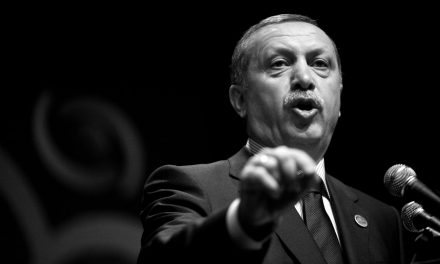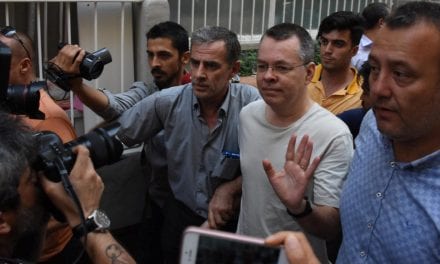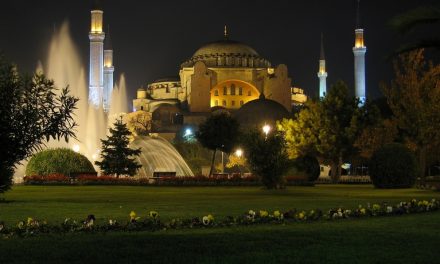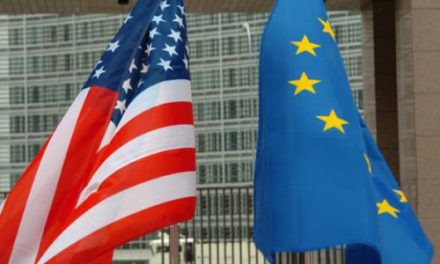Greece and Macedonia appear to be on the same page as never before in terms of their wish to resolve the dispute that has kept Macedonia stuck in the waiting rooms of NATO and the EU for a decade.
Macedonia is now on a tight deadline, hoping to get a green light to start EU membership talks and an invitation to join NATO this summer. But Greece has to agree to this first.
Macedonia’s Foreign Minister, Nikola Dimitrov, often describes himself as “cautiously optimistic”. Unlike some other colleagues in the government, who have created an impression that a resolution to the “name” feud with Greece is imminent, Dimitrov acknowledges the risk that this issue might have to wait a more opportune time.
But he also says that both Skopje and Athens have a duty to do their best to use the current momentum.
In an interview with BIRN, Dimitrov talks about the historic opportunity to close the issue with Greece, and about Macedonia’s chances of boarding the European train. He prefers to talk about green lights rather than red lines, about allies rather than enemies, and about the present and future rather than the past.
Last week, he met his Greek counterpart in Thessaloniki, where they agreed to get directly involved in the UN talks mediated by Matthew Nimitz. The talks were restarted late last year, after being frozen for three years.
Dimitrov says he left the meeting with a feeling that there is the political will on both sides to move forward, while taking into consideration the challenges and concerns of the other side.
“It is important that we do everything in our power, both in Skopje and Athens, to seize the moment,” Dimitrov told BIRN.
“We have encouraged Nimitz and I expect that on Wednesday he will put his ideas and proposals on the table – an initial frame to enable substantial progress and negotiations. After that, we will get involved more directly and we [the two foreign ministers] will head the negotiating teams from both countries.”
“In that respect there is a certain risk, because usually ministers and prime ministers get involved when the outcome looks certain. Here, that is not the case but I believe it is worth the risk,” he said.
“Despite all the optimism, we have to accept the possibility that we may not be able to overcome our differences at this time, but we are adamant about keeping at it, until we do.”
The Greek media have reported that the two prime ministers, Zoran Zaev and Alexis Tsipras, will also meet in Davos on January 24.
Greece has long objected to its neighbour’s name, insisting that its use of the word “Macedonia” implies a territorial claim to the northern Greek province of the same name.
As a result, in 2008, Greece blocked Macedonia’s entry to NATO and has also continued blocking the start of Macedonia’s EU accession talks, despite several positive annual reports from the European Commission on the country’s progress.
Since it came to power seven months ago, Macedonia’s new centre-left government, has significantly improved relations with Greece, abandoning the more hostile language and acts of the previous VMRO-DPMNE government.
Former prime minister and former VMRO DPMNE leader Nikola Gruevski played hardball with Greece, and supported the controversial process known as “Antique-ization” – which included giving Skopje the appearance of a city from Classical Antiquity. It made Greece look like the more constructive of the two players in an otherwise absurd dispute.
“We need a solution, so that we can abandon the trenches of history and focus more on the present and the future,” Dimitrov said.
That is no easy task. Compromise name proposals floated in the past have included “New” or “Upper” Macedonia, or even “Republic of Macedonia-Skopje” – to respond to Greece’s demand for a distinction to be drawn between the country and the Greek region of Macedonia.
Apart from use of an adjective, the solution needs also to define the scope of use of the new name [bilateral or international] and the – most sensitive issue of all – the part linked to identity, the name of the language and nationality.
Click here to see the proposal from 2013: Nimetz’s Name Proposal for Macedonia Revealed
“A solution is only possible if the [country’s] identity is not undermined,” Dimitrov said. “The nature of the dispute is such that it creates fear … so it is very important for the Republic of Macedonia that it is clear that the solution will not hurt the [national] identity.
“In essence, the solution needs to cover several elements, so that it is acceptable to both countries: not to damage our identity; and to respond to Greece’s demand to have a clearer distinction between the country Macedonia and the region of Macedonia. Also, it would be very European if there was no monopoly on the term ‘Macedonia’ – if there was no exclusive right to the use of the term, for either side,” Dimitrov said.
If a compromise is reached, it will also have to be confirmed in a referendum in Macedonia.
He pauses when asked whether a referendum scares him. He quotes a headline in the Greek newspaper Kathimerini: “What are we going to do without Gruevski?”
“It is bizarre when you think about how the biggest ‘defenders’ of the name in our country make the most hardline elements in Greece so comfortable, almost as if they are working together,” he said, referring to the former PM.
“A lot will depend on what the solution is like; of course we would not offer the people a solution we do not stand behind. The referendum will be very important for the sustainability of the solution. Of course, the people have the final say – and it will be up to us to explain it well,” he said.
Depending on the pace of the process, if there is sufficient progress, Macedonia hopes that Greece may agree to Skopje opening EU membership talks and getting an invitation to join NATO.
Some EU officials and think tanks have in the past suggested that the country could get a pass to open EU negotiations and in tandem work on resolving the name issue.
Dimitrov said all options remain in play with the change of context in Macedonia, and the international community must understand that the country needs the tools of the accession process to carry out true reforms, which cannot happen while it is stuck in the waiting room.
“There is a shared responsibility, between us and Greece, but also in the international community to make best use of our democratic awakening in the past several years,” he said, referring to the years-long political crisis in Macedonia.
He insists that it is crucial for trust to exist between the two sides and for the efforts to overcome the issue to be genuine.
To achieve that, both sides are also discussing different confidence-building measures that would include cooperation between different institutions, such universities from both countries, alongside goodwill gestures such as renaming Skopje airport and the highway – both currently named after Alexander the Great, which irked Athens.
Optimism’ is surely the buzz word for the renewed efforts to resolve the decades-long name row but too often in the past a solution has fallen prey to nationalism and to an inability to hold straightforward discussions.
If this window of opportunity is wasted, given that both countries may have elections next year, it may be a while before a similar break is on the horizon.


















